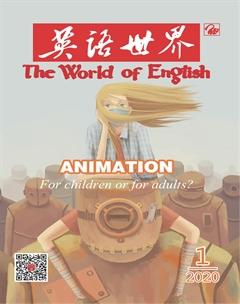Many People’s Earliest Memories May Be Fictional 许多人的最初记忆或为虚构
韩聪
In a large survey of peoples first memories, nearly 40% of participants reported a first memory that is likely to be fictional, according to findings published in Psychological Science, a journal of the Association for Psychological Science.
Current research indicates that peoples earliest memories date from around 3 to 3.5 years of age. However, the study from researchers at City, University of London1, the University of Bradford, and Nottingham Trent University found that 38.6% of 6,641 participants claimed to have memories from age 2 or younger, with 893 people claiming memories from age 1 or younger. This was particularly prevalent among middle-aged and older adults.
To investigate peoples first memories, the researchers asked participants to detail their first memory along with their age at the time. In particular, participants were told that the memory itself had to be one that they were certain they remembered. It should not be based on, for example, a family photograph, family story, or any source other than direct experience.
As many of these memories dated before the age of 2 and younger, the authors suggest that these fictional memories are based on remembered fragments of early experience—such as a pram2 (or stroller3), family relationships and feeling sad—and some facts or knowledge about their own infancy or childhood which may have been derived from photographs or family conversations.
“We suggest that what a rememberer has in mind when recalling fictional improbably early memories is an episodic-memory-like mental representation4 consisting of remembered fragments of early experience and some facts or knowledge about their own infancy/childhood,” said Shazia Akhtar, first author on the study and Senior Research Associate at the University of Bradford.
“Additionally, further details may be nonconsciously inferred or added, e.g. that one was wearing nappy when standing in the cot,” Akhtar added. “Such episodic-memory-like mental representations come, over time, to be recollectively experienced when they come to mind and so for the individual they quite simply are ‘memories which particularly point to infancy.”
“When we looked through the responses from participants we found that a lot of these first ‘memories were frequently related to infancy, and a typical example would be a memory based around a pram,” explained Martin Conway, Director at the Centre for Memory and Law at City, University of London and coauthor of the paper.
“For this person, this type of memory could have resulted from someone saying something like ‘mother had a large green pram. The person then imagines what it would have looked like. Over time these fragments then becomes a memory and often the person will start to add things in such as a string of toys along the top,” he added.
“Crucially, the person remembering them doesnt know this is fictional,” Conway noted. “In fact when people are told that their memories are false they often dont believe it. This partly due to the fact that the systems that allow us to remember things are very complex, and its not until were 5 or 6 that we form adult-like memories due to the way that the brain develops and due to our maturing understanding of the world.”
根据美国心理科学协会期刊《心理科学》发表的研究结果,在一项关于人们最初记忆的大型调查中,近40%的受调查者反映的最初记忆可能是虚构的。
当前的研究显示,人的记忆最早约从三岁到三岁半开始。然而,来自伦敦大学城市学院、布拉德福德大学和诺丁汉特伦特大学的研究人员发现,在6641名受调查者中,有38.6%的人声称拥有两岁或更早时候的记忆,893人声称拥有一岁或更早时候的记忆。这一情况在中老年人中尤为普遍。
为了研究人们的最初记忆,研究者要求受调查者详述其最早的记忆及当时的年龄,并特别告知受调查者,必须确定这份记忆是自己的实际经历。例如,这份记忆不应源于家庭照、家庭故事或其他渠道,而必须是自己亲身经历的。
这些记忆中,有很多发生在两岁或更早的时候,报告的作者们认为,这些虚构的记忆或基于早期经历的记忆片段,比如一辆婴儿车、家庭关系和悲伤情绪,或基于和受调查者自身婴儿期或童年相关的一些事实或认识,这些事实或认识可能来自照片或家庭交谈。
该研究报告的第一作者、布拉德福德大学的高级副研究员沙齐亚·阿赫塔尔说:“我们认为,回忆者在回想虚构的、看似早得离谱的记忆时,浮现的往往是类似片段式记忆的心理表征,如早期经历的记忆片段,以及和受调查者婴儿期或童年相关的一些事实或认识。”
“此外,他们还可能无意识地推断或添加更多细节,比如穿着尿布站在婴儿床上。”阿赫塔尔补充道,“随着时间推移,这种类似片段式記忆的心理表征在脑海里浮现时,就成了回忆性体验,因此对个人来说,这种心理表征确实是‘记忆,尤其是幼时的‘记忆。”
该论文的合著者、伦敦大学城市学院记忆和法律中心主任马丁·康韦解释说:“查看了受调查者的回应后,我们发现,很多最初‘记忆都与婴儿期有关,关于婴儿车的记忆就是个典型的例子。”
“对这个人来说,这类记忆可能是由于有人说了 ‘妈妈有一辆大的绿色婴儿车之类的话。然后这个人就会想象那辆婴儿车的样子。随着时间推移,这些片段会变成记忆,这个人往往会开始加些东西上去,比如顶部边缘的一串玩具。”康韦补充道。
“关键是,记住这些的人并不知道这是虚构的。”康韦指出,“事实上,人们被告知自己记错了的时候,他们通常不会相信。部分原因是我们记事的系统非常复杂,直到五六岁的时候,我们才会因为大脑的发育方式,以及对世界日趋成熟的理解,形成类似成人的记忆。”
(译者为“《英语世界》杯”翻译大赛获奖者;单位:郑州大学外国语与国际关系学院)

